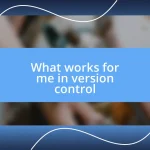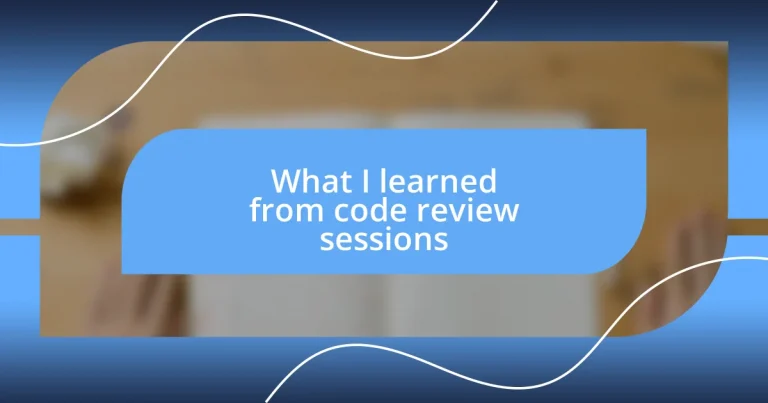Key takeaways:
- Effective communication during code reviews, including clear dialogue and empathy, fosters trust and creativity among team members.
- Providing constructive feedback requires specificity, context, and a balanced approach to encourage collaboration and action.
- Mutual respect and sharing personal experiences enhance collaboration, transforming code reviews into valuable learning opportunities.
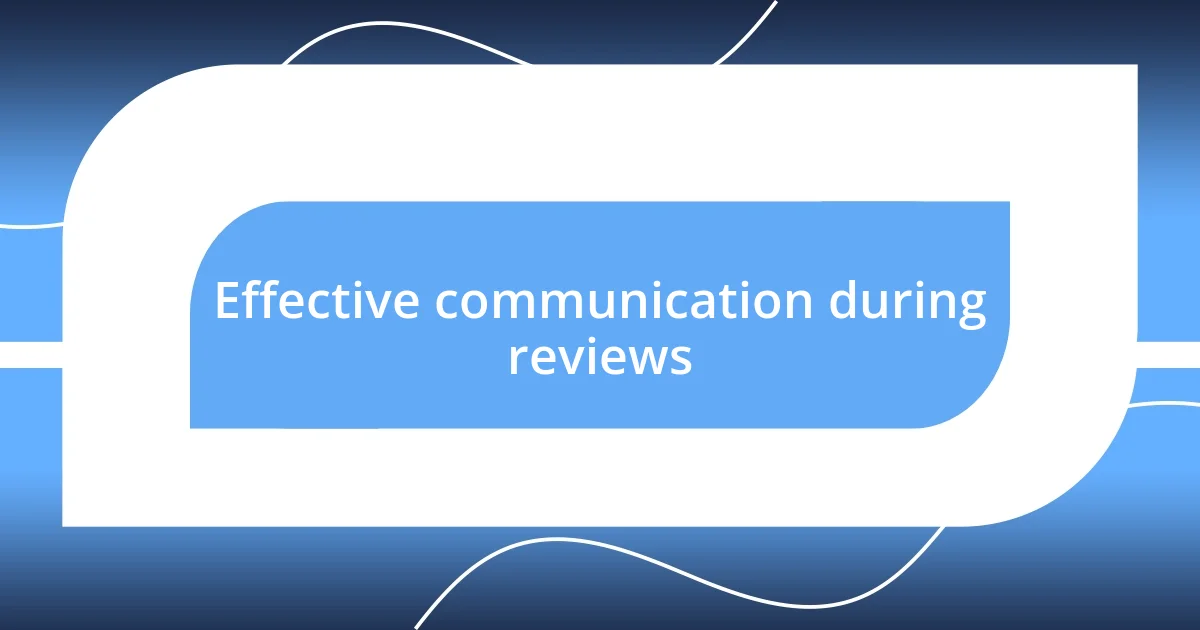
Effective communication during reviews
Effective communication during code review sessions can make all the difference. I remember one particular session where clear dialogue transformed the experience. Instead of just throwing comments into a chat, we set aside time for a back-and-forth discussion. This not only cleared confusion but also built trust. Have you ever left a review feeling more uncertain than before? I know I have, and it always boils down to how the feedback was presented.
When I dive into a review and see vague comments, it feels like running into a wall. Yet, when teammates articulate their thoughts clearly, it sparks creativity and opens doors to new ideas. I once received feedback that initially stung, but when the reviewer explained their perspective in detail, it turned into a major learning moment for me. Isn’t it amazing how a bit of empathy can change the entire tone of the conversation?
Listening is just as crucial as speaking during these sessions. I often ask questions to clarify points, and I’ve noticed that this simple act encourages others to do the same. I cherish those moments when someone shares a personal challenge they faced while addressing similar code issues. It connects us on a deeper level and transforms reviews from mere critiques into valuable learning experiences. Are your code reviews a platform for mutual growth? If not, it may be time to rethink how you engage during these discussions.
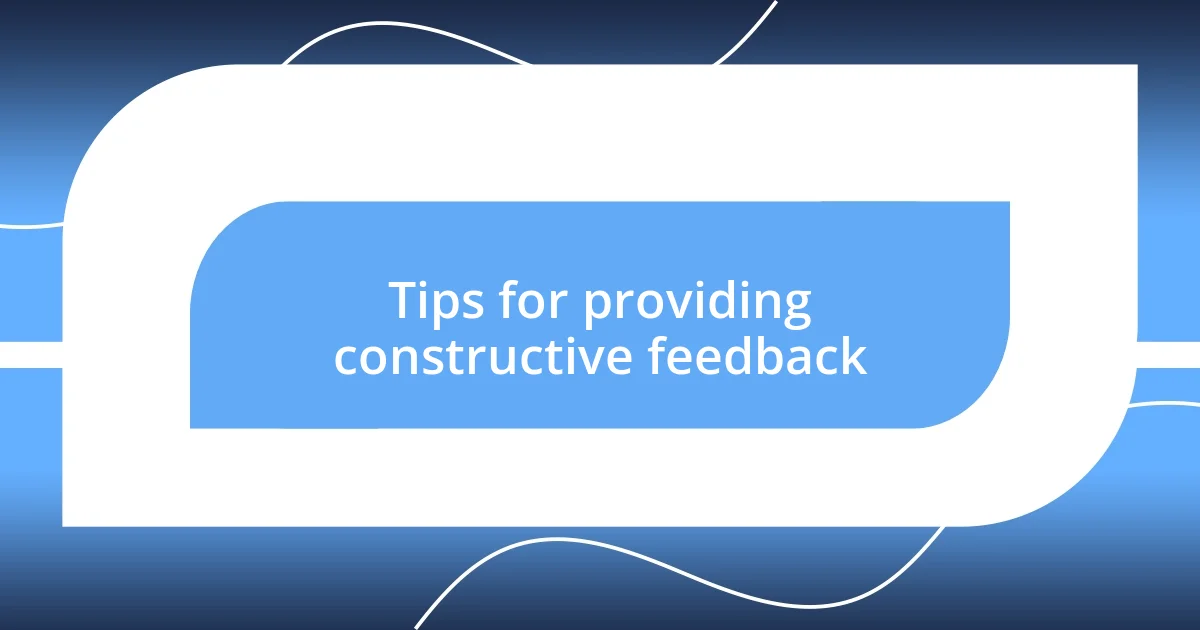
Tips for providing constructive feedback
Providing constructive feedback is an art that can significantly enhance the effectiveness of code review sessions. I learned to be specific in my comments, as vague feedback often leads to misunderstandings. I recall a time when I pointed out an issue without clarifying why it mattered. The developer appreciated my input but remained unsure of how to improve. This experience taught me that clarity fosters action.
Here are some tips that I’ve found helpful for giving constructive feedback:
- Be Specific: Clearly describe the issue and its impact on the code or project.
- Use “I” Statements: Frame feedback from your perspective to avoid sounding accusatory. For instance, “I noticed…” instead of “You should…”.
- Encourage Dialogue: Invite questions and discussions to clarify your points, as this builds collaboration and trust.
- Balance Your Feedback: Mix positive comments with areas for improvement. This softens the critique and promotes a growth mindset.
- Provide Context: Explain why a certain change is necessary or beneficial, grounding your feedback in broader project goals.
These techniques have consistently made my reviews more productive and fostered a sense of teamwork, which is invaluable in our collaborative coding environment.
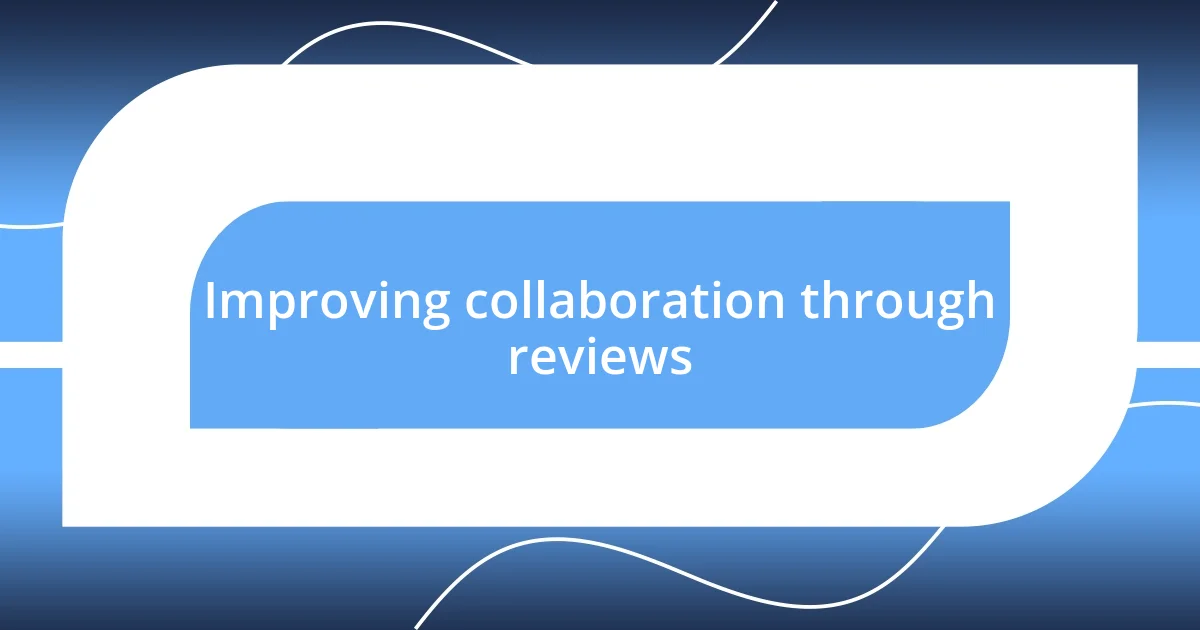
Improving collaboration through reviews
Fostering collaboration during code reviews can change the dynamic of a team. I distinctly remember a time when a colleague and I worked closely on a challenging feature. Instead of merely commenting on each other’s work, we decided to sit down and pair-review together. This not only allowed us to iron out issues in real time but also led to some unexpected discoveries. Have you ever stumbled upon a solution just by talking it out with someone? I believe those moments are what truly make collaboration shine.
Another aspect I’ve learned is the power of mutual respect. When I consciously appreciate the effort that goes into someone’s work, it creates an uplifting environment. I once emphasized a teammate’s well-written code before suggesting a change. Their response was overwhelmingly positive, which made it easier for them to accept my feedback. Do you notice how acknowledgment can transform a simple code review into a collaborative dialogue? It really does lay the groundwork for better teamwork.
As I reflect on my experiences, I realize that sharing personal lessons can significantly enhance our collaborative spirit. By opening up about a difficult bug I faced, I encouraged others to share their own struggles. This exchange illuminated our collective challenges and made us view each other’s work with empathy. Isn’t it fascinating how vulnerability can bridge gaps and foster genuine collaboration in a sometimes intimidating environment?
